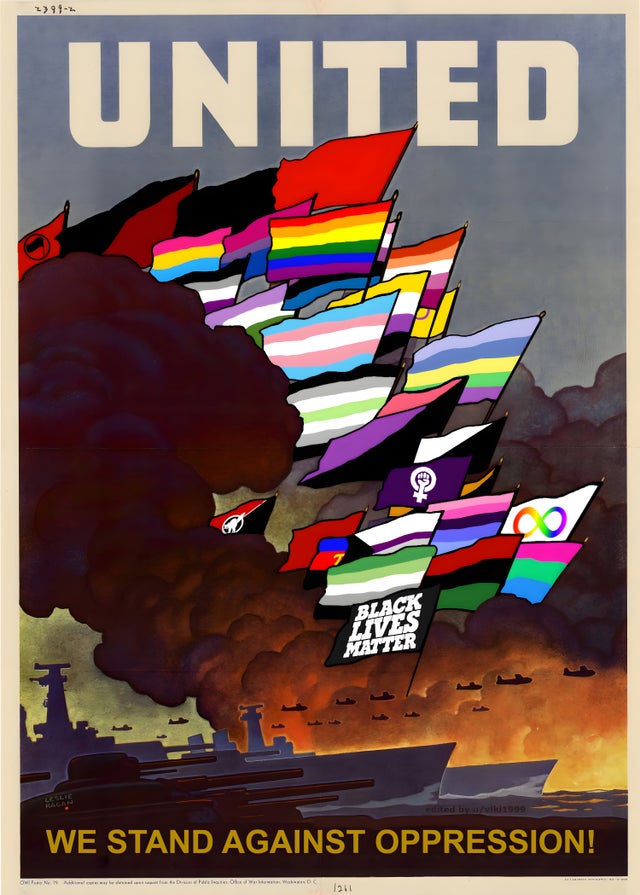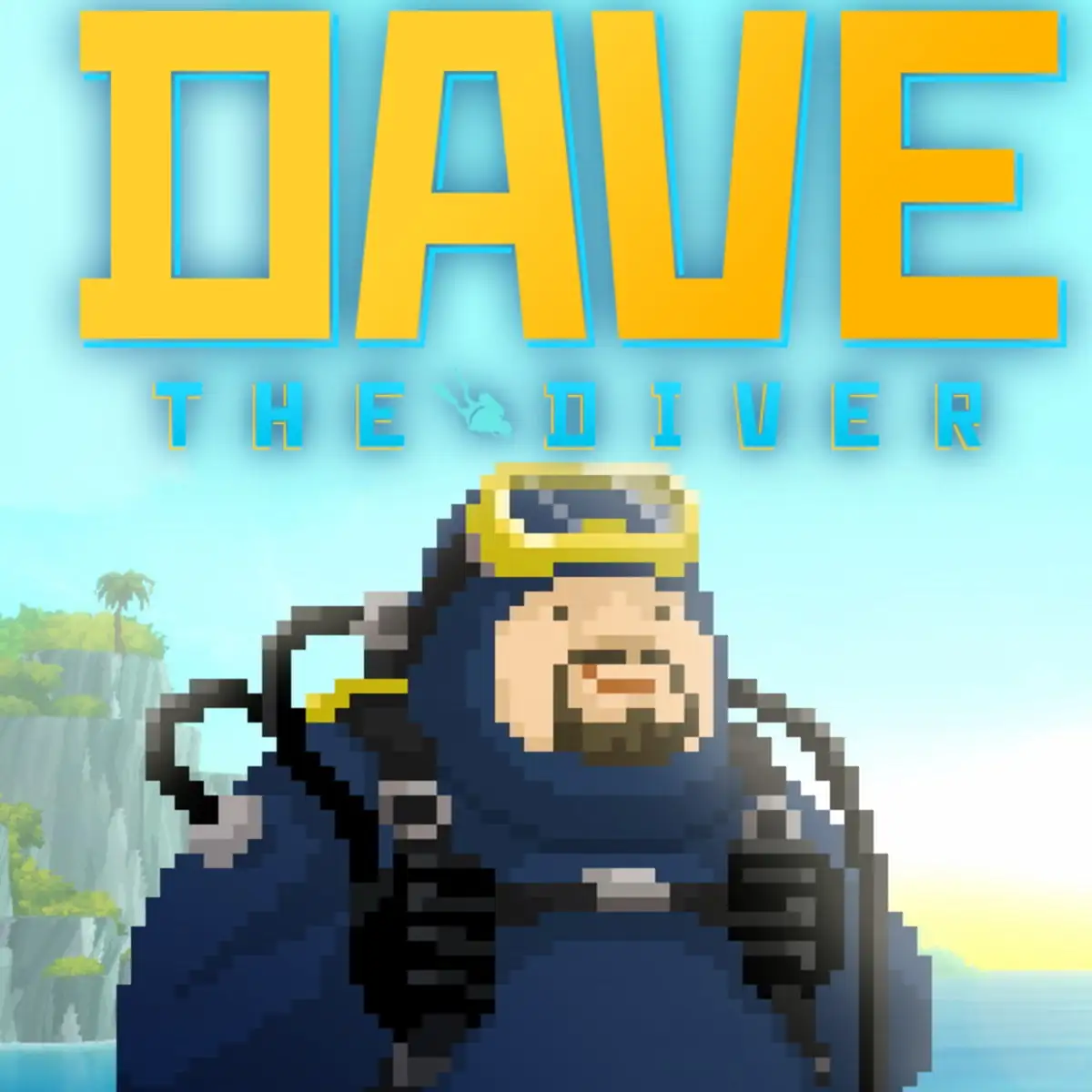snowflake [none/use name]
- 16 Posts
- 34 Comments
- snowflake [none/use name]to
 ·16 days ago
·16 days agoadvice on how to write characters that fulfill the role of a stock character type in that kind of story that still have some depth and personality that isn't just "the no nonsense leader," "wiseass with a heart of gold" "gentle giant" "stoic man of few words with a tragic past" "bad bitch that's got something to prove" "antsy pessimist that's worried the Intel's off and the op's gonna go sideways" etc
Use real life. The pain and suffering in your soul from disappointment or rejection or hatred or ambition. Your characters have that too.
- snowflake [none/use name]to
 ·26 days ago
·26 days agoyeah I love goo-vials
- snowflake [none/use name]to
 ·2 months ago
·2 months agoIn my alternate history world (see my profile), I wanted to let African and American cultures thrive, not be colonised by Europe.
I wanted transatlantic contact to be contact between equals: West Africans + East Americans + far West European barbarians (distinct from the imperial core in Central Europe) all come together and ally... it's not exactly a lovefest but they see their common interest and create technology-transfer and confederation.
In actual history, one reason America was wiped out was the West lacked immunity to smallpox.
Then I learned a little-known historical tidbit (learned it on Hexbear iirc).... Africans had knowledge of smallpox inoculation! Therefore, if Africans were respected allies that crossed the Atlantic (not slaves), they could bring the Americans smallpox immunity:
- https://en.wikipedia.org/wiki/Onesimus_(Bostonian) – Onesimus (late 1600s–1700s) was an African (likely Akan) man who was instrumental in the mitigation of smallpox in Boston, Massachusetts. He introduced the variolation method of inoculation, which prevented smallpox and laid the foundation for vaccines.
- https://en.wikipedia.org/wiki/Smallpox_vaccine – Variolation was also practiced throughout the latter half of the 17th century by physicians in Turkey, Persia, and Africa. In 1714 and 1716, two reports of the Ottoman Empire Turkish method of inoculation were made to the Royal Society in England, by Emmanuel Timoni, a doctor affiliated with the British Embassy in Constantinople, and Giacomo Pylarini. Source material tells us on Lady Mary Wortley Montagu; "When Lady Mary was in the Ottoman Empire, she discovered the local practice of inoculation against smallpox called variolation."
So in the alternate history, in the 1490s Europe crosses the Atlantic and rounds Cape Bojador, and a multi-ethnic confederation initiates contact with the Native Americans. It brings the knowledge of smallpox immunity to them, because that's a technology several Old World Cultures (but not white Europeans) had.
By making Africans equals in transatlantic contact, that simultanæously justifies why Americans weren't decimated by smallpox.
- snowflake [none/use name]to
 ·2 months ago
·2 months agoOk, get this:
There's a big volcanic eruption in 72BC
The volcano throws up a dust cloud that cools the earth, crops fail because of lack of sunlight, states suffer because they can't levy taxes and conscript soldiers. The 1458 mystery eruption, "put pressure on medieval governments and negatively impacted military efforts", and the 1257 eruption "may have facilitated the Mongol invasions of the Levant", "may have altered the outcome of the Toluid Civil War", and may have led to the Black Death (a 7-year plague). The volcanic winter of 536 led to the Plague of Justinian (a 7-year plague) and to the expansion of Turkic tribes.
What's going on in 72BC???
- Spartacus's War was 73–71 BC
- The Third Mithridatic War was 73–63 BC, Rome fights against enemies including the Sarmatians and ends up annexing Judaea
- The Han gain a decisive advantage over the Xiongnu/Huns in 72 BC
What would happen if a volcano blocked out the sun in 72BC???
-
Rome's crops fail in 72 🡲 Rome's army is weaker against Spartacus
-
Rome's crops fail in 72 🡲 Rome's army is weaker against the Sarmatians 🡲 Rome doesn't annex Judaea until later 🡲 No Jesus 🡲 No Christianity 🡲 Massive consequences
-
A 7-year plague breaks out like after the 536 and 1257 volcanic winters 🡲 Rome has less manpower and tax revenue 🡲 having less manpower and tax revenue (plus they lost more men in Spartacus's War), Rome is less successful in the Gallic Wars 14-20 years after the crop failure 🡲 lacking Gaul it is weaker thereafter, Celts are stronger
I'm working on the assumption that people living a more decentralised existence closer to nature (like the Sarmatians and Xiongnu) will cope better with disruptions like crop failures. That's open to disagreement, but I think is a defensible claim. Plague affects trade-routes a lot; self-sufficient communities do better; so the knockon effect is that we wind up with a more self-sufficient solarpunk mode-of-production overall.
Interesting to think about this for-want-of-a-nail stuff. Driving myself mad with it tbh. The search-space is big and gets bigger the more you think and learn.
Show
- snowflake [none/use name]to
 ·2 months ago
·2 months agoIsn't this the plot of The Simpsons S04E08
Trump will put a 20% levy on wives
- snowflake [none/use name]to
 ·2 months ago
·2 months agoDid that ever threaten to produce capitalist class dynamics?
I'd also love to hear about what conflicts did and do exist, what political theories developed around them, and how they were or weren't resolved. Do pre-capitalist class dynamics persist or were those dismantled, and if so, how?
I've got much better answers to these now. I might do a history post when I get a chance.
Short version is:
-
Gallic Wars were a stalemate. The Romans gains a foothold in Gaul and Britain, but the Celts also remained strong there. A half-strength Roman Empire: and that influences everything subsequent, including that Emperor Constantine doesn't influence later religion.
-
Yes feudalism develops in Italy, France, Britain. But its barbarian competition is stronger.
-
Now yknow how in the 1400s, Portugal got good ships and contacted West Africa and then America? That happened here too but it was barbarian tribal Portugal.
-
Whoever gets [good ships]+[good guns] in the 1400s wins the planet. That was the Euroid imperialists in the mundane timeline. Here it's the Celts and Goths.
-
The Celts and Goths, when they contact West Africa and America, don't do imperialism. Instead they form alliances. Guilds train Americans and Africans in technology (notably including ships and guns).
-
The economic incentive is strengthening/growing the brotherhood. The Goths+Celts from Europe ally with the Berbers+Igbo+Tiv from Africa, and the Tlaxcallan from Mesoamerica. Feudalism in Europe falls before this rainbow coälition.
-
Now Europe has [good ships]+[good guns]+[tribal federalism]. They intervene in India on behalf of the Panchayati Raj tribes. In China, they intervene on behalf of the Miao rebels against centralised statism. In America, they help the Tlaxcallan fight off Aztec imperialism and Aymara fight off Inca imperialism.
-
By about 1600, the world is then won by the economic system described. Because they did they equivalent of what Feudal Europe did.
-
- snowflake [none/use name]to
 ·2 months ago
·2 months agohttps://en.wikipedia.org/wiki/Za_(guilds) – Japan during the Muromachi period (1336-1573)
https://en.wikipedia.org/wiki/Kabunakama – Kabunakama (株仲間) were merchant guilds in Edo period Japan (1603-1868)
https://en.wikipedia.org/wiki/Shreni – India in the early Buddhist period and through the Mauryan period [i.e. 322–184 BC] – Good article
Book: Meera Abraham, Two Medieval Merchant Guilds of South India (on Annas-archive)
Book: Randi Deguilhem (eds), Crafts and Craftsmen of the Middle East: Fashioning the Individual in the Muslim Mediterranean (on Annas-archive)
Kiran Kumar Thaplyal, Guilds in Ancient India: A Study of Guild Organization in Northern India and Sestern Deccan from circa 600 BC to circa 600 AD
Rulers, Townsmen and Bazaars: North Indian Society in the Age of British Expansion 1770-1870
Removed by mod
Registering members is a special responsibility of the tribe, that will become important when we start looking at confederations. It's basically a big family with a roll book.
This is like the Somali 'Abtirsi' or the Chinese 'zupu'
-
The Somali concept of ‘Abtirsi’ refers to a systematically organized lineage-based registry or list of paternal ancestors among Somalis. There is an attempt to digitise them: https://web.archive.org/web/20160305090840/http://abtirsi.com/list.php
-
A zupu (simplified: 族谱; traditional: 族譜) is a Chinese kin register or genealogy book. It contains stories of the kin's origins, male lineage and illustrious members. The updating of one's zupu (simplified: 修族谱; traditional: 修族譜) is a very important responsibility, usually of the eldest person in the extended family, who then hands the responsibility down to the next generation.
Imagine almost every family in the world had this, and it was your basic legal legal identity: serving the purposes of a passport or social security number in Terra.
(Half the purpose of these threads is to learn interesting little cultural tidbits)
-
version 2 live now, take a look☝️
About loose marbles
[moving this here to keep the post about governance, not mutual aid]
What if you don't have a tribe? Yeah then you're in trouble, not gonna lie. I never said it was a perfect utopia.
Maybe you were exiled for some a heinous crime like kin-slaying. Maybe you were exiled for a bullshit crime like homosexuality. Maybe your family all died in a shipwreck.
Remember there are two kinds of mutual aid groups: tribes (same blood and culture) and guilds (same profession). See https://hexbear.net/post/596720 .
So now you must join a guild or seek out a tribe that is a good fit and plead for them to adopt you.
If you are strong and useful and a good worker, it's in their interest to say yes. Or maybe you're just good-looking. They may of course say no for some reason.
Most commonly, a tribe will say to an applicant something like: "For a twelvemonth and a day, you work 60 hours a week and get rough food and the smallest cabin. If you fulfill this – and you don't piss anyone off along the way – you then become a full member."
If you can't find a mutual aid group because you're useless or annoying? You could be in real trouble, mate, not gonna lie. Traditional cultures value the Law of Hospitality so you could blow place to place staying 1-3 nights in each depending on their hospitality.
deleted by creator
deleted by creator
- snowflake [none/use name]to
 ·3 months ago
·3 months agoIt's interesting that you advocate for that. I suppose it shows how material benefits are the most important base.
My culture is getting americanized a lot and I hate it and resist it.
But we're not white so we're not getting "attained whiteness" as you call it.
Long ago, the world lived in a relative peace. Guided by nature, the people lived off of the land, paying their respects to the gods that assisted them in their daily lives. Then, the Divine arrived. Its light blessed all, allowing for great prosperity in exchange for the Luminae people's devotion. Declaring the unified Holy Kingdom of Auran, the Divine maintained a more physical presence than the gods of nature that came before it. The Divine could be seen, could be talked to, and could be felt. It was by all means their leader, as well as the arbiter of their salvation, as they saw it.
So this, to me, sounds like an allegory of when centralised monotheism replaced anarchic polytheism, am I right? Free pagan tribes replaced by Abrahamic states. I have similar themes in my worldbuilding. (Maybe I'm imposing my interpretation.)
making sure I don't end up with a Fire Emblem 7 kind of situation
what does this mean? duckduckgo did not explain it
Should names be changed?
'Iberia' to me comes with a lot of baggage: I expect it to have Iberian climate and culture. I have seen worldbuilding claim Terran names successfully, but it's rare.
Earth magic is a classification applied to spells that use the caster as the source rather than a god or patron.
There is a debate about this in Terran magic. Some magicians like those who practice Goëtia or hang around becomealivinggod.com use spirits all the time rather than their own power. On the other side of the debate you have people like John Michael Greer: "And further: I've decided that questions involving the evocation of spirits are also permanently off topic here. The point of occultism is to develop your own capacities, not to try to bully or wheedle other beings into doing things for you. I've discussed this in a post on my blog."
What should the Earth/Dark magic be called?
Middle Pillar magic maybe, to evoke the Middle Pillar exercise. Or siddhi magic to evoke the development of siddhis by self-cultivation. Or cultivation to evoke the cultivation genre in Chinese fiction.
- snowflake [none/use name]to
 ·3 months ago
·3 months agoblan means foreigner; blacks from the USA are blan






Worldbuilding
Characters
Dialogue
Three totally different things that require totally different kinds of thinking. The same rules don't apply across them.